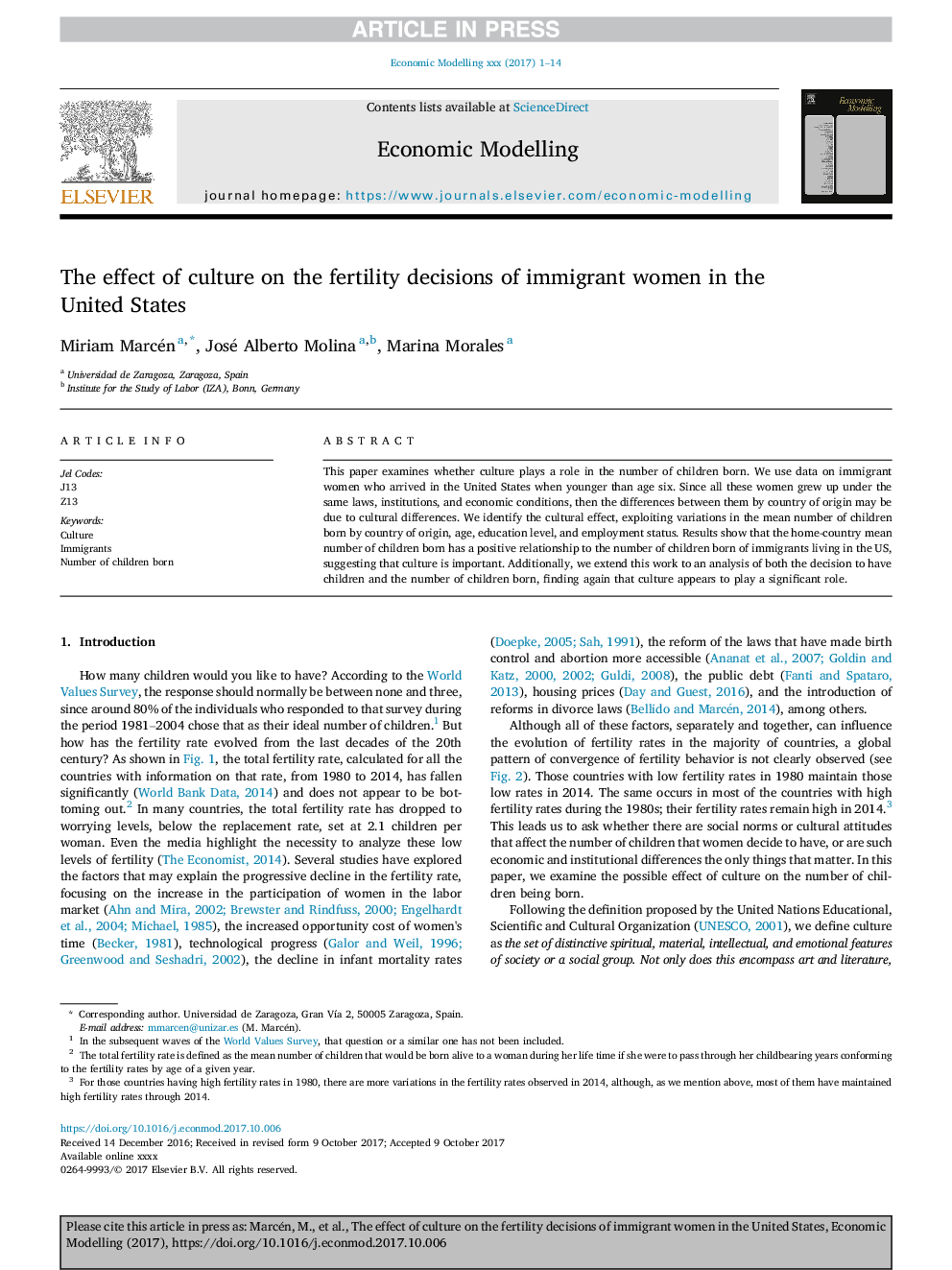ترجمه فارسی عنوان مقاله
تأثیر فرهنگ بر تصمیم گیری های باروری زنان مهاجر در ایالات متحده
عنوان انگلیسی
The effect of culture on the fertility decisions of immigrant women in the United States
| کد مقاله | سال انتشار | تعداد صفحات مقاله انگلیسی |
|---|---|---|
| 139273 | 2018 | 14 صفحه PDF |
منبع

Publisher : Elsevier - Science Direct (الزویر - ساینس دایرکت)
Journal : Economic Modelling, Volume 70, April 2018, Pages 15-28
ترجمه چکیده
این مقاله بررسی می کند که آیا فرهنگ در تعداد فرزندان متولد شده نقش دارد. ما از زنان مهاجری که در سن 6 سالگی در ایالات متحده وارد شدند، استفاده می کنیم. از آنجایی که همه این زنان تحت همان قوانین، موسسات و شرایط اقتصادی رشد می کنند، تفاوت های میان آنها با کشور مبدا ممکن است به دلیل تفاوت های فرهنگی باشد. ما اثر فرهنگی را شناسایی می کنیم و از تغییرات میانگین تعداد فرزندان متولد کشور مبدا، سن، سطح تحصیلات و وضعیت اشتغال استفاده می کنیم. نتایج نشان می دهد که میانگین تعداد فرزندان متولد شده در کشور در رابطه با تعداد فرزندان متولد شده از مهاجران ساکن در ایالات متحده رابطه مثبت دارد و این نشان می دهد که فرهنگ مهم است. علاوه بر این، ما این کار را به تجزیه و تحلیل تصمیم گیری در مورد فرزندان و تعداد فرزندان متولد می کنیم، و دوباره می یابیم که فرهنگ نقش مهمی ایفا می کند.

